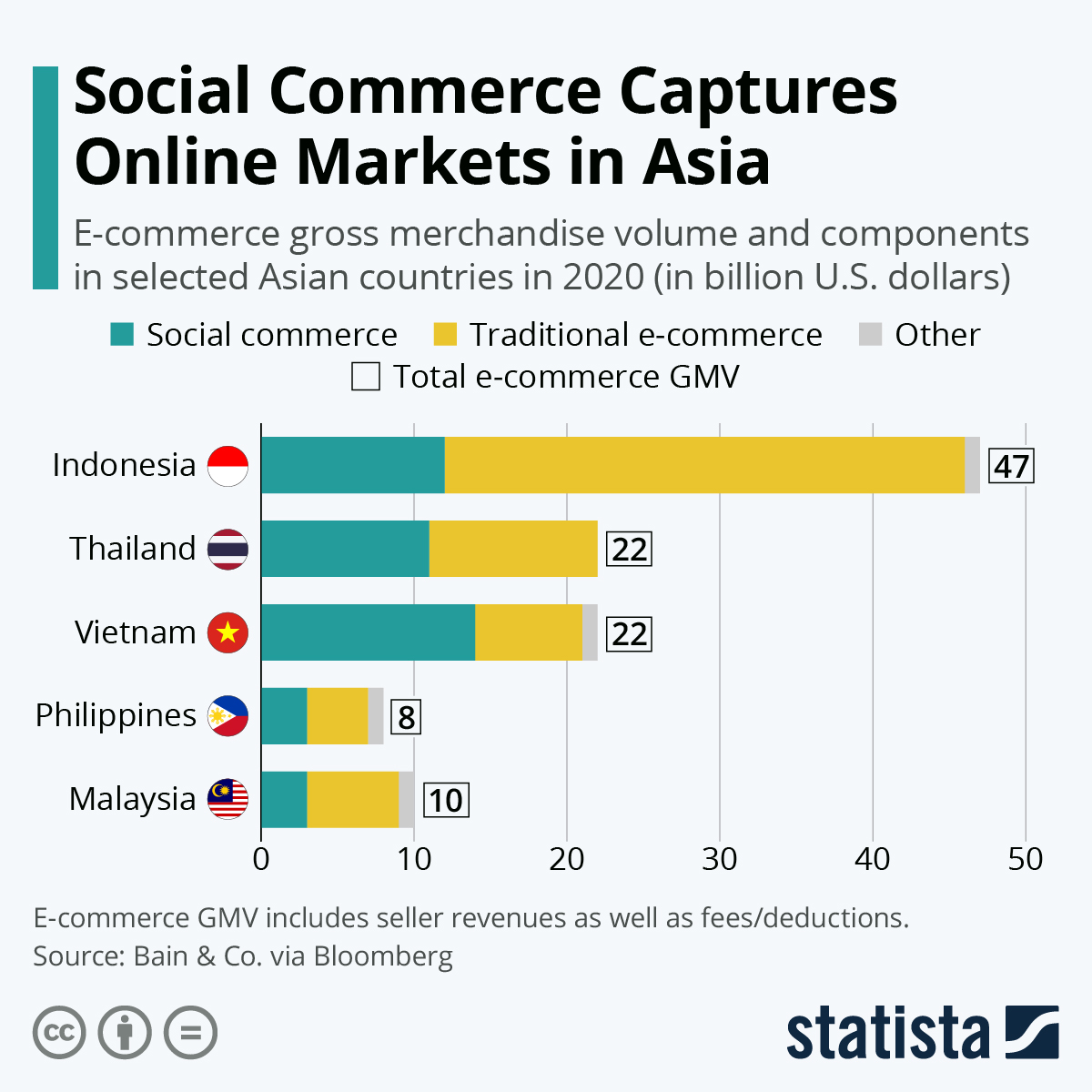The blend of social media and e-commerce dubbed social commerce first gained traction in China but has also taken other countries in Asia by storm. According to numbers by Bain & Co. reported by Bloomberg, social commerce already makes up significant amounts of e-commerce gross merchandise volumes in several other countries in the region.
Shares ranged from around a quarter in Indonesia to two thirds in Vietnam. The analysts estimated that half of Thailand’s e-commerce GMV was already made up of social commerce in 2020, as was 38 percent of the Philippines’ and 30 percent of Malaysia’s.
Social e-commerce can take on many forms, from platforms specializing in group buying to social media networks integrating sales mechanisms to smaller sellers communicating directly with customers via chat features, personalizing their shopping experience. According to the report, young tech-savvy populations in Southeast Asia are making the expansion possible. Time spend on social media is also above average in the region, making the success of social commerce even more feasible.
While China’s new social commerce boom was fueled by the ubiquity of WeChat and its line of direct communications, business owners and sales people in Southeast Asia are chatting away on local messenger or umbrella apps. Across the region, social commerce sales are estimated at 44 percent of the $109 billion e-commerce market.
After the recent revival of group buying in China, which expanded fresh produce solutions majorly during the pandemic, a myriad of social commerce startups in other countries are trying to replicate the success. Examples are the Philippines’ Resellee, which announced $1 million in fresh funding at the end of 2020, lets sellers leverage their social network to offer discounted prices to groups, thereby connecting producers and end consumers, including for fresh produce. Singapore’s WEBUY runs on a similar system and has already expanded into Malaysia and Indonesia.















